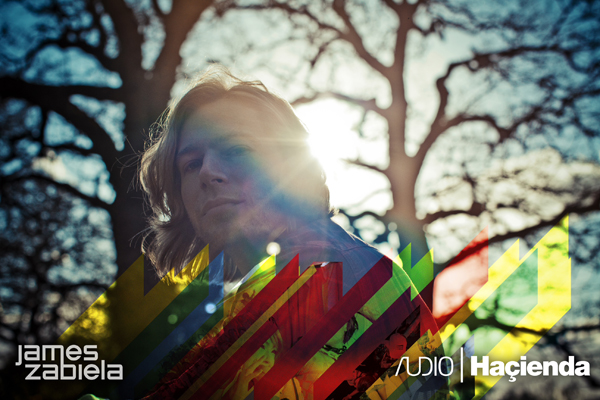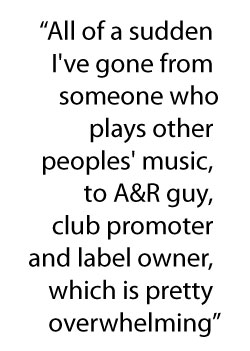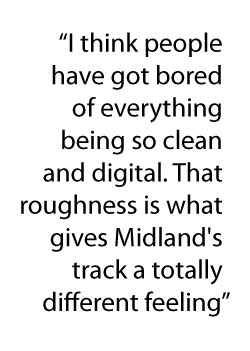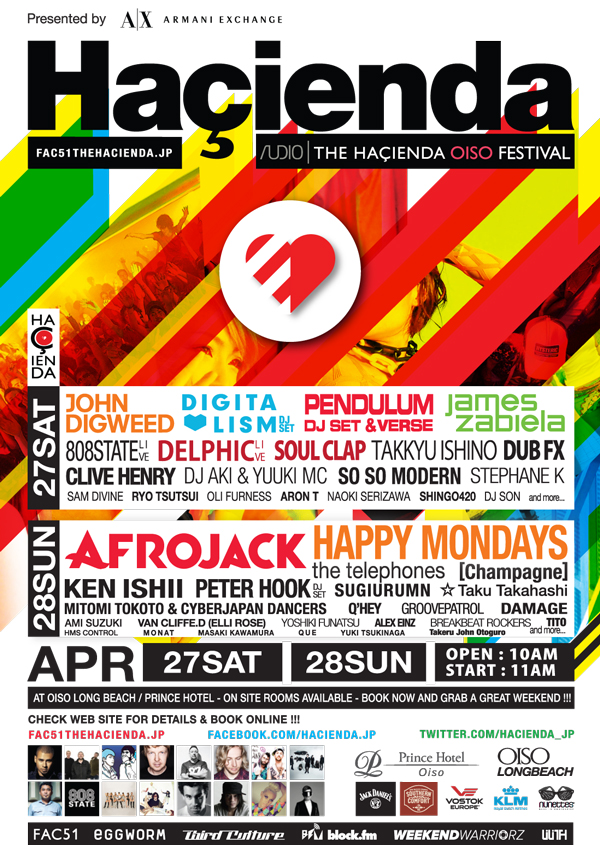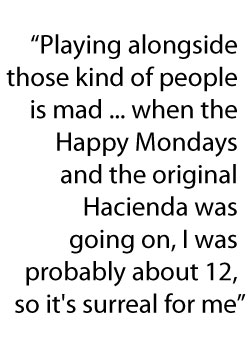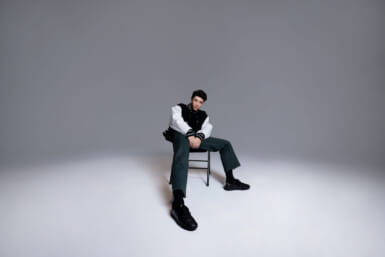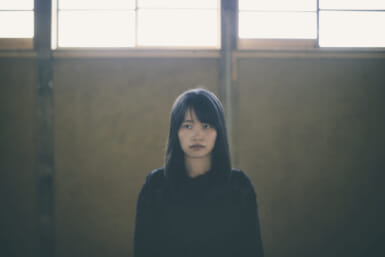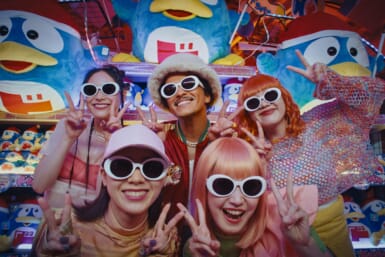Ahead of this month’s Hacienda Oiso Festival, we have a wide-ranging interview with James Zabiela, the British DJ and producer who will play Saturday April 27 at the FAC51 Arena – his first festival in Japan. Coming from the man described by Time Out London as “technically the world’s best DJ”, Zabiela’s set should be one of the highlights of the weekend.
By Mike Sunda / Mike Burns
How has 2013 been going for you so far?
It’s going good, I’ve been touring in Brazil, Canada and the USA. Pretty hectic as usual! I’ve also been in the studio since I came home, working on a remix, which is rare for me as I don’t make many remixes. The remix is for a UK D&B act called SpectraSoul, who I guess have played Japan before… so that’s a big change, going from being on the road touring every night to being in my studio everyday!
How was the tour? Any highlights?
Toronto was a highlight for me, as I haven’t been there for five years, and a lot of people came out… it was pretty epic! The club I played there, Moskito, has a ridiculous sound-system. I think they’re trying to give Stereo in Montreal, which supposedly has the best sound-system in the world, a run for their money. El Paso was a good one too, as it’s right on the border of Mexico, so about about 80% of the crowd had came across the border from Juarez. It was nuts, very enthusiastic ravers!
Last December saw the debut release on your new Born Electric label – how much work went into getting the imprint up and running, and what does 2013 have in store for it? How’s the label going?
It’s going really well! In America whilst on tour Jason Bentley from KCRW played the label’s first release The Healing on his show, and he’s like the Pete Tong of America, so it’s been really well received over there.
With the label, I wish I’d done it a bit sooner to be honest. We just got the masters back from the second release and we’re ready to go with that soon. It was a lot of work to get the label up and running, with me always being on the road touring, and I’m not really a business-person. I run the label with a good friend of mine, and he’s been able to do all of the boring stuff.
I wouldn’t be able to do it on my own, for example (like) John Digweed. I don’t know how he has so consistently managed to DJ so much and run such a big label seemingly on his own for a large amount of time. He has such an incredible work ethic, it’s amazing really.
Born Electric are also putting on parties now, so we had a yacht party in March in Miami, where we brought together a pretty varied line-up including Four Tet, Tensnake, Eats Everything, Miguel Campbell and Midland. We’re also looking at doing some UK festival tents this year as well, probably something at Global Gathering.
So all of a sudden I’ve gone from someone that plays other peoples’ music, to A&R guy, club promoter and label owner, which is pretty overwhelming, but it’s going surprisingly smoothly. We’re making mistakes as we go along though! We ordered the wrong t-shirts and stickers, the vinyl came out after the download (twice!). Our t-shirt/vinyl packages were late too, so I had to write a personal apology note to everyone that had ordered one!
But the label is something I want to build into a vehicle for everything – music, promoting, parties in Ibiza and so on. So yeah, it’s hectic but all good. I can imagine there will be plenty more mistakes though!
On ‘The Healing’, Hot Chip’s contribution was almost a ‘live jam’ style recording, whilst Midland’s remix was recorded onto tape…
When Al Doyle from Hot Chip was working on it, he sent me a private YouTube link of him putting it together, and it was just him jumping around the studio – on the mixing desk, drum machines and playing stuff on the Moog… it was pretty special when he sent me that, it felt like my birthday!
Midland recording onto tape didn’t surprise me at all to be honest, knowing him really well. I think he recorded it all to tape then back to digital, then sent it on to be mastered. So it’s basically been mastered from a cassette tape. It gives it a really unique sound and is kind of indicative of where dance music is at the moment, with everyone making stuff that purposefully sounds 10-15 years old. It’s a cycle I suppose, and all of that 90s house music is back with a vengeance! I think people have got bored of everything being so clean and digital. That roughness is what gives Midland’s track a totally different feeling.
Was it a conscious decision to push the analogue, multi-format style that you began to explore with your Master Series mix, or more of a coincidence?
It was a coincidence really, I didn’t think too much about it, as I was more involved with textures and field recordings. I spent so long making The Healing, going from place to place recording sounds. Like in Mexico I was caught in a storm, and I recorded the sounds from that, and the next thing I know I’m recording stuff in Buenos Aires. All these sounds made it into the track and it’s nice for me, as it’s like a little diary of where I was when I was making it all. For me at least, I can hear the individual recordings, and it reminds me of looking like a complete weirdo on the streets of Peru!
Watching the set you played at Boiler Room ahead of the release, it really seemed like you were in your element, feeding off the energy of the crowd up-close and personal and vice versa – given that you’re normally playing much larger venues, how much harder do you have to work to create the same sort of atmosphere?
The Boiler Room is so weird, as you don’t really realize how popular it is until you get home the next day and see how many people have viewed it on YouTube or tweeted about it. It’s completely different to playing in a club; the music isn’t up very loud, everyone is stood around behind you having a drink, and you’re DJing to a camera, so it’s pretty strange! I’m really glad I did it though because the feedback was overwhelming.
It’s so much easier in a club… less of a tea party and more of a rave. Same with a festival, it’s much easier to get the crowd going. Everyone in the Boiler Room are so conscious of being filmed, even I was! I was thinking I’d better not pick my nose live on camera! I was kind of on edge about being on camera all the time. Whereas at a festival, all I’m thinking about is the dance-floor.
Your roots in turntablism have meant that you’ve stood out amongst electronic DJs throughout your career, but aside from a few exceptions (Eats Everything and Boys Noize come to mind) it seems like there are fewer DJs coming through with the same sort of skill set – do you think it’s turning into a lost art, and how has it helped you throughout your career?
I’ve actually not really seen much of Boys Noize. I saw him at Coachella one year, but I’d just finished playing and he was on directly after me, so I didn’t really get a chance to see what was going on, which is a shame as I really like his music and label. The stuff he’s just released with Dave Clarke and DJ Pierre is really cool, he’s gone totally acid house. In terms of other DJs though, there are definitely fewer coming through with this kind of skill-set, as it’s so easy now to mix other peoples’ records.
Turntablism has definitely helped me through my career. I’ve always said that I’ve got one foot in the past and one foot in the future when it comes to DJing. I try to use new technology in creative ways. I like mixing and I like trying mad effects and taking risks, knowing that it could go wrong at any minute; thats part of the fun for me, and when I get it right I get a buzz from it. If I was just using Traktor and everything was synced together, it wouldn’t be the same. I’d find it boring.
On that note, any advice to new DJs?
I’ve been helping my girlfriend practice mixing and beat-matching, and she had a gig recently and the DJ after her showed up with a Native Instruments S2 synced to Traktor, but he didn’t know how to beat match, so he turned to her to ask if she could bring his first track in, which is madness! I couldn’t even imagine it! It’s crazy to think that there are DJs out there that don’t even have that skill of beat-matching, which in it’s basic sense isn’t even hard.
I know there are different levels of beat-matching, like if you look at what Sasha was doing with wonky acetates 10 years ago, that was something beyond basic beat-matching; 3 minute mixes of things that aren’t supposed to go together.
It’s a skill that everyone should learn as a DJ. Computers and CDJs can fail, and things can go wrong. I played with vinyl recently and it was really liberating, it was nice to be able to remember everything. Mixing vinyl is like riding a bicycle, it stays with you.
There’s so many ways of performing as a DJ now, which is what sets people apart. For me it’s all about customization, that’s the way I think it’s going. People will want customization of some kind. I use a Pioneer RMX-2000, and you can completely change all the parameters, save your settings on an SD card, show up to a gig, plug your SD card in and the effects unit becomes your own. So customization is the way to go.
Are you still working with Pioneer?
Yeah, I’m beta-testing some firmware at the moment for their Nexus players, because like I said before, things can go wrong with CDJs. And I did quite a lot of testing on the RMX-1000 and had some input into that. I actually did a demo video for Pioneer in January. It was just a five minute video for their Platinum Edition players, which are these super pimped out, chrome finished units. But I had a cold at the time, so we had to do it so many times as I was sneezing all over everything!
Last year it seemed like everyone picked up on Deadmau5’s rant that DJs (although he at least singled out American ‘EDM’ DJs) are just ‘button-pushers’ – do you find a statement like that offensive when you obviously put so much effort in when you’re DJing yourself?
I never actually saw what he said, but I was talking to somebody who did see it and he said that what Deadmau5 was actually referring to was live electronic acts. Regardless of what he meant to say, how good are you at pushing buttons? It boils down to how creative you are at pushing buttons, and how good are you at, for example, finger drumming or something!
There’s a guy called Mad Zac who makes these drum packs for Ableton, which is like a customized arcade controller, no bigger than an iPad in terms of surface area. That guy plays the drums on them with his fingers and it is mental to watch! So Mad Zac is a button pusher I guess, but he does it in such an impressive and skilful way.
Looking at the ever-expanding set of gear that you bring with you when you DJ – have you ever thought about working on a live set separate from your DJing?
I do carry a lot of stuff, but I somehow manage to get it all into one bag now, it’s like the Tardis! I would work on a live set if I made a lot more music, I’d consider it anyway. But I think I’d find it quite restricting and weird after DJing for so long, being able to read the crowd and having the freedom to play anything.
It’s obviously a totally different thing. If I was going to do live sets, I’d look at someone like Apparat, he DJs but does Apparat Band completely separate, which is almost like a sit-down gig and is nothing like a rave. I’ve been to see him twice and it’s amazing… completely different from his DJ sets.
I actually first booked him to play at my birthday at Space in Ibiza a couple of years ago and his DJ set was awesome, but his band project was a stark contrast to that; he plays guitar and sings. That’s the way I would probably do it should I ever get to the point where I have enough music to suits that type of thing.
As far as the whole live electronic thing, I find it restrictive and I’d rather DJ. I do live edits and drastic tempo changes on Ableton aside from the CDJs during my DJ sets, and it’s nice to have that freedom. That is something I thought I’d never be able to do when I started on two belt-driven turntables!
Mark Fell recently wrote a great article for The Wire essentially stating that ‘less can be more’ with equipment, and that a comparatively minimal studio set-up might actually encourage more creativity. Have you ever felt something similar, or do you find that your creative limits continue to expand with every new piece of equipment?
I haven’t seen that article, but I hear that kind of thing a lot from people. I read an interview with Blawan and he said the same kind of thing; he has an old analogue synth which he uses all the time and knows it inside out. If you have a studio full of gear, you have a problem of choosing what to use.
It reminds me of how I used to use the Pioneer EFX-1000 unit. I used it a lot and then stretched it beyond it’s traditional use, so it make’s total sense to me. I’m not someone that owns a lot of studio gear, but the problem is with any digital audio workstation, theres already so much choice on your computer in terms of plug-ins and synths, so I even restrict myself within that; I have a couple of soft synths, a couple of effects plug-ins and I don’t install anything else.
Some people have every plug-in under the sun installed on their computer, but they are never gonna use all of it! You can definitely have too much stuff. Not mentioning any names, but someone recently gave me a DVD-ROM full of bootleg software, everything you could think of, and I’ve never even put it in my machine! I get the Ableton suite, I get a couple of plug-ins, learn them, and get the best out of both, rather than install endless things that I’m barely gonna scratch the surface of. I’d rather have a few that I can learn and know inside out.
Where is your studio?
Well I recently moved house and for the first time I have a studio at home, in my basement. I bought a listed building in Southampton, UK and it has this medieval basement. It’s quite a mad place to make music, but it’s really inspiring. When I’m away on tour I now get excited about coming home and trying out a new track in the basement, and I’ve never really had that feeling before, so it’s nice. You’ll see my complexion getting more and more pale this year as I’m stuck in my basement!
You’ve DJ’d in Japan many times throughout your career – what in particular do you enjoy about playing out here?
I try to go to Japan at least once a year. Not only is it an amazing place to play, but it’s probably one of my favorite places to visit as a tourist. Also, Pioneer are based there so I get to check-out their factory and nerd-out while I’m there.
The people in Japan really make it a joy to play there. Everywhere is different, but some crowds are just more enthusiastic than others. That doesn’t mean the audiences are any more or less appreciative, but for example if you play in France, the people are more reserved, compared to Japan where people are pogo-ing around the dance-floor going nuts! It certainly makes for a more rewarding gig when the crowd are more vocal and happy, and that’s what I always think about playing in Japan.
It’s actually similar to South America and certain parts of Eastern Europe, where crowds just seem so much more enthusiastic. Its very rewarding to have that sort of feedback while you’re playing. Good for the ego as well!
You’ll be playing the Hacienda Festival in April – how does it feel to be billed amongst such iconic figures of the UK club scene like Peter Hook and 808 State?
First of all, this is actually going to be the first festival I’ve ever played in Japan, which I’ve never thought about until now, so it’s going to be pretty special!
Playing alongside those kind of people is mad isn’t it! It’s such a wicked line-up. I mean when the Happy Mondays and the original Hacienda was going on, I was probably about 12 years old, so it’s surreal for me. I got to know about all of that through the medium of things like 24 Hour Party People and the Joy Division movie, Control.
I grew up listening to Sasha and John Digweed, they were my idols when I was first getting into DJing. So to be able to DJ with John is always a thrill. I was a proper fan-boy when I was 17 and Northern Exposure 2 was out, so it’s very surreal for me! I actually got my breaks into DJing through John inviting me to play the backroom of Bedrocks in London, so I owe him a lot, and I definitely won’t ever forget that.
The Hacienda and the Madchester scene has undoubtedly played a massive role in UK club culture – you began DJing after the club had already closed, but did it influence you in any way?
Yes definitely, it influenced the entire UK rave scene and it was the birth place of acid house. I love this resurgence of acid that’s present in the UK techno scene now too. I’m playing at Sankey’s in Manchester next week, which is a great club, and the fact that the Warehouse Project in Manchester sells-out every week pretty much supports the fact that Manchester is still alive with such a massive music scene. For me, it is easily the best place to DJ in the UK. It’s great because I’m getting a taste of Manchester for myself now, as opposed to hearing about all the raves back in the day.
We name-checked Midland earlier as a young producer who has featured on your label. Who are some of your other current favorite artists emerging from Born Electric, and could you give us some ‘ones to watch’ for 2013?
It’s really nice having this label now and being able to find lots of undiscovered talent. It’s really random how we find these guys, and sometimes they actually just find us. Our next release is by a guy called Pedestrian, who sung a vocal on Maribou State’s new single, and this track that he’s putting out for us is a proper, amazing vocal song. He’s a good DJ too and we had him on at the Boiler Room with us, so he is definitely one to watch. We found him through my best friend, who manages DJs now.
Someone else to watch out for is Pedram, he has an EP coming out soon on the label. Pedram and I have been mates for years and years. He’s been making music on his computer, and it’s been slowly getting better and better, and now he’s at the stage where every other week he’s sending me a track, and I’ve probably got about two albums worth of music off him, so I’m trying to decide which ones to put out!
Then we have another EP coming soon from Iron Galaxy, who is actually a music teacher from Montreal. He has just done a remix for Turbo on Tiga’s label. I found Iron Galaxy just by listening to random music on SoundCloud, and at the time I think he had only one remix out on Audio Culture, so he was a very random find!
What can Japanese audiences expect from your DJ set at the Hacienda Festival?
I honestly don’t know! I can be quite spontaneous I suppose, I will have some stuff prepared when I arrive at the festival, so I’ll either go prepared or completely change it if I realize the circumstances demand it! Generally, I like to explore within the confinements of my set, and I don’t just stick to one genre, which is actually quite hard to do at festivals when you have a short set-time. For example if you have an hour it’s hard to go from house to techno to drum & bass, whilst making it sound coherent and smooth, but that’s kind of what I try to do as a DJ; ‘genre-hop’ in a way that seems natural.
Finally, any message to your Japanese fans?
As I said earlier this is the first time I’ve played a festival in Japan so I’m really excited about it! I’ve DJ’d in Japan a lot, but to be doing a festival there for the first time, after visiting frequently for the past five years, is just amazing! I can’t wait!
James Zabiela plays the Hacienda Oiso Festival on Saturday April 27 at the Oiso Long Beach Hotel. Tickets are available now. For more information see: www.fac51thehacienda.jp

